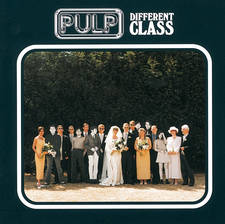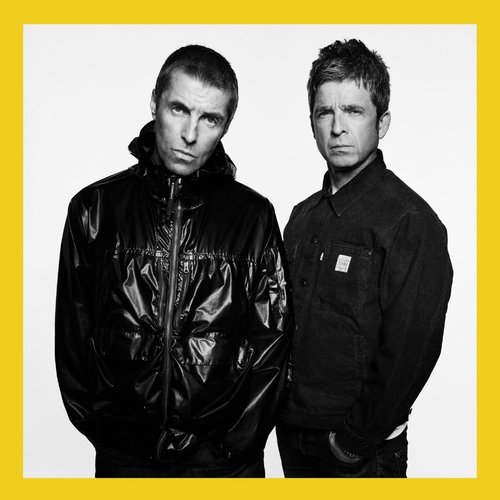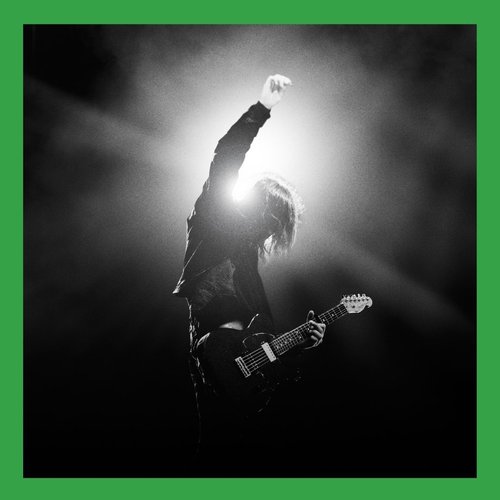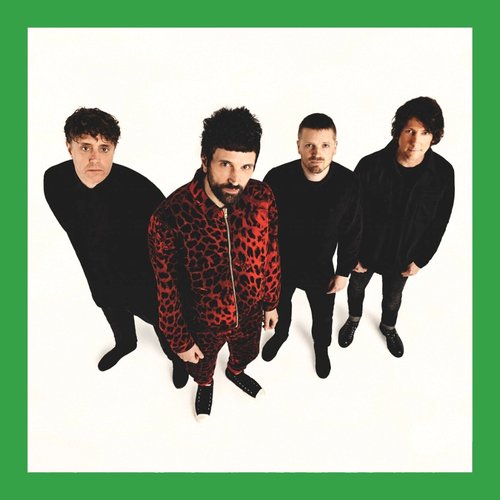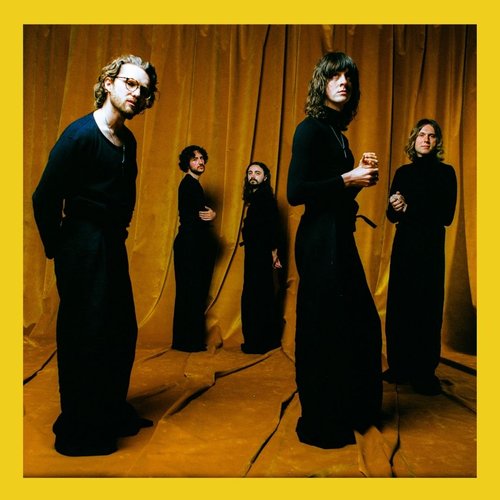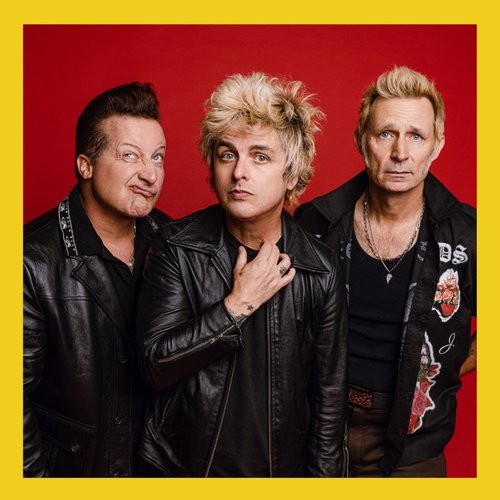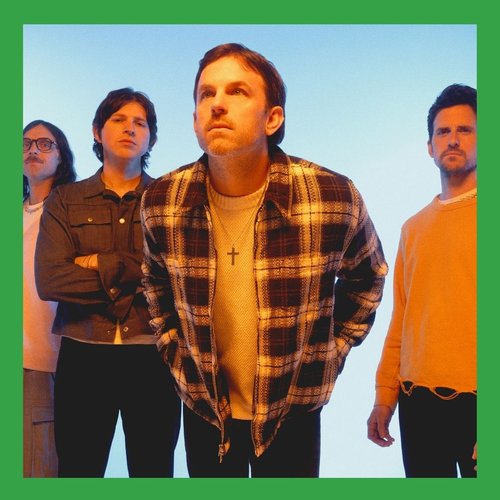Who killed John Lennon? The story of the Beatle's shocking murder
8 December 2024, 08:00
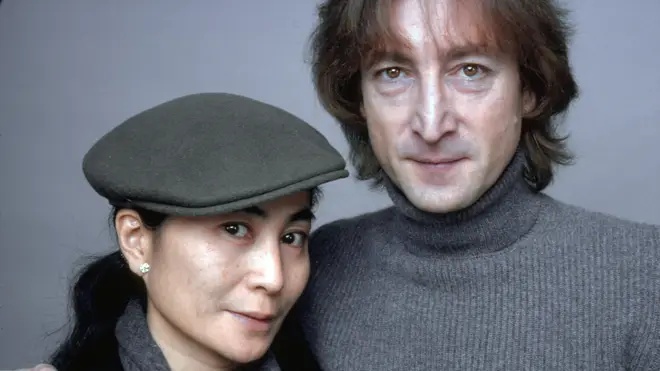
On 8th December 1980, one of the most terrible events in rock history took place in New York. This is what happened.
Listen to this article
The death of John Lennon on 8th December 1980 remains one of the most appalling moments in the long history of rock music. We've lost a lot of great musicians over the years, but it's rare for a star to be murdered - it's even rarer that the musician that has been killed is someone who had as much influence on society, music, art and culture as John Lennon.
The Beatles weren't just pop stars. They experimented with music, fashion, drugs and religion in a way that had far-reaching effects. Your favourite band wouldn't be able to do half the things they're able to in 2024 if it hadn't been for the way The Beatles had shaken up the world in the 1960s.
So when Lennon was brutally killed, aged just 40 years old, on the steps outside his home in New York, a generation was stunned. What happened? Who would commit such a terrible act?

John Lennon's big comeback of 1980
Lennon had just embarked on his return to the music business after a five year hiatus. In 1975, his contract with EMI had ended with a Greatest Hits compilation, Shaved Fish. The Beatles company Apple was finally dissolved the following year, meaning Lennon had no commitments to any record company. He was free.
And, for a time, he stepped away from show business. He took care of his newly-born son, Sean, who arrived in October 1975. In July 1976, Lennon finally got his green card, which allowed him to stay in the United States as a permanent resident. Now that he was able to come and go as he pleased, he left the US and travelled to Tokyo to visit relatives of his wife, Yoko Ono.

Even though he'd toy with musical ideas during his time as a "house husband" (the recent Beatles reunion song is based on a demo from 1977), in the summer of 1980, as Sean was about to turn five, Lennon began writing again in earnest and spent time in Bermuda working on new music. With his creative juices flowing, John had written enough songs for two new albums.
John and Yoko planned a record that would showcase both of their musical ideas and the album that was to become Double Fantasy was recorded at New York's Hit Factory studios between August and October 1980.

(JUST LIKE) STARTING OVER. (Ultimate Mix, 2020) - John Lennon (official music video HD)
The first single from the album was (Just Like) Starting Over, which had a 1950s vibe and a reflective lyric. Lennon was back! The single was well-received and while the accompanying album was considered by some critics to be middle-aged self-indulgence, Beatles fans were happy to see their hero back in the charts once again, competing with his old sparring partner Paul McCartney.
The media were curious about what Lennon had been up to during his hiatus and the ex-Beatle gave a number of interviews. A lengthy discussion with Playboy saw Lennon discuss his old band's songs at length, while still insisting that The Beatles didn't have "the answer".

"If the Beatles or the Sixties had a message, it was to learn to swim," he told Playboy's David Sheff. "And once you learn to swim, swim. Carrying the Beatles' or the Sixties' dream around all your life is like carrying the Second World War and Glenn Miller around. That's not to say you can't enjoy Glenn Miller or the Beatles, but to live in that dream is the twilight zone. It's not living now. It's an illusion."
However, some so called "fans" wouldn't let go of the idea of The Beatles as all-knowing leaders of a generation.
The events of 8 December 1980
Press interest in Lennon was still high as Christmas approached and Lennon and Ono took part in a photo shoot with Annie Liebovitz for Rolling Stone magazine at their apartment at the Dakota building, just opposite New York's Central Park.
Lennon and Ono then gave an interview to San Francisco DJ Dave Sholin. In the chat, Lennon claimed that he was keen to play his new music live, having never properly toured as a solo artist. "I’m so hungry for making records because of the way I feel," he told Sholin and his associates. "I wanna make some more records before I tour. So I’d like to make at least one more album before actually making that decision."
John ended the discussion by signing an autograph for the DJ, adding "I’m a fan of people, too, you know? I like people to sign their books when they give ’em to me and all that…" It was a prophetic statement, given what was about to happen.

Yoko Ono - Walking On Thin Ice
John Lennon's final studio session
After the radio interview had wound up, Lennon and Ono left the Dakota around 5pm for the Hit Factory, the studio situated across town. Yoko had recorded a song called Walking On Thin Ice, which acknowledged the "New Wave" bands like The B52s that could be heard in New York's trendier nightclubs. The purpose of the session was to mix the record as Lennon was keen to issue it before Christmas.
As the couple left the Dakota, they walked through the usual gaggle of fans that had started to congregate around the building in the Upper West Side of the city, ever since Lennon had started to become a public figure again. One of the fans offered a copy of the new album Double Fantasy and Lennon duly signed the sleeve.
That fan was Mark David Chapman.

The murder of John Lennon
Mark Chapman was born in Texas, but in 1980 lived in Hawaii with his wife Gloria. Now 25 years old, he had been a Beatles fan as a teenager, but as a born-again Christian was angered by John Lennon's claim in 1966 that the Liverpool band were "more popular than Jesus".
His animosity towards the musician intensified once John started to appear in the media again in 1980. Chapman couldn't understand that the man who preached "All You Need Is Love" was now living as a millionaire in New York.
Chapman travelled to the city in October 1980 with the intention of murdering the former Beatle, but something changed his mind and he returned home. When Chapman travelled to New York again on 6 December again with a .38 caliber revolver, nothing would prevent him from carrying out his terrible mission.
Chapman left his belongings at a hotel together with a copy of a book by the American author J.D. Salinger, The Catcher In The Rye. The killer later said that the novel would form his "statement": the book was first published in 1951 and concerns a troubled teenager called Holden Caulfield who rails against all the "phonies" he meets. The short novel has long been a popular text with disaffected youths around the world. Lennon, in Chapman's mind, was such a "phony".
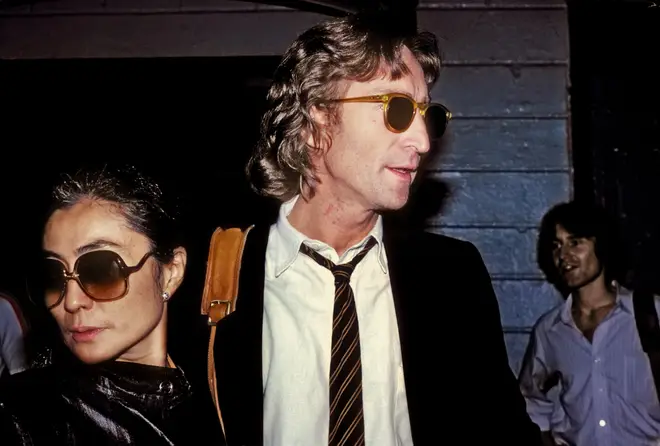
For most of Monday, 8th December, Mark Chapman joined the group of Beatles obsessives hanging around outside the Dakota building, waiting for a glimpse of their hero. He missed Lennon arrive at the apartment early in the morning, but had a chance later on to see John's son Sean turn up with his nanny.
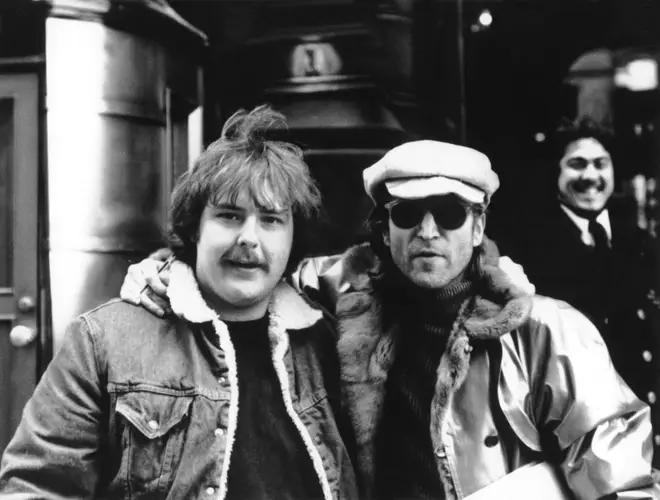
When Lennon signed Chapman's album as he was leaving the building that evening, the assassin was caught up in the excitement of meeting a Beatle. But later in the evening, his mood had changed.
At about 10.50pm that night, John Lennon and Yoko Ono returned to the Dakota in their limousine after a successful session mixing Walking On Thin Ice. John considered the record to be Yoko's best chance yet at a chart hit. The couple walked across the pavement and through the archway that led into the building's entrance.
As Lennon walked by, Mark Chapman fired five bullets from his revolver into Lennon's back. The bullets were "hollow-point", meaning they exploded into shrapnel once they hit their target.
As Lennon stumbled into the entrance of the Dakota, doorman Jose Perdomo heard the commotion and dashed to help. New York police officers quickly arrived on the scene. One of them, Officer James Moran, tried to get a response from the fallen figure, asking: "Are you John Lennon? Lennon reportedly responded: "Yes."

Chapman, meanwhile had removed his coat and stood under a lamp, where he was found by doorman Jose Perdomo reading The Catcher In The Rye. When an anguished and confused Jose demanded of the youth "Do you know what you've just done?", Chapman replied calmly: "Yes. I just shot John Lennon."
John Lennon was no longer breathing when he arrived at the Roosevelt Hospital ten minutes later, and he had no pulse. Medics battled for nearly 20 minutes to resuscitate him, but the bullets had shredded his body and the Beatle died in the emergency room. The coroner's report said that Lennon had lost more than 80% of his blood supply.
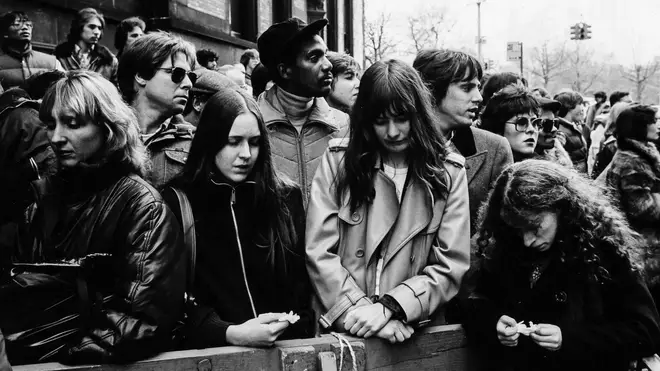
The aftermath
Yoko Ono was devastated when she was given the news. She had the horrifying task of telling her five year old son that his father had died before Sean could hear it through the media.

A large chunk of America discovered that one of The Beatles had been murdered when the news was announced during Monday Night Football, which was on TV that evening. The news broke overnight in Lennon's native UK. John's other son, Julian, his Aunt Mimi and his former bandmates were all informed in the early hours of Tuesday 9th December 1980.
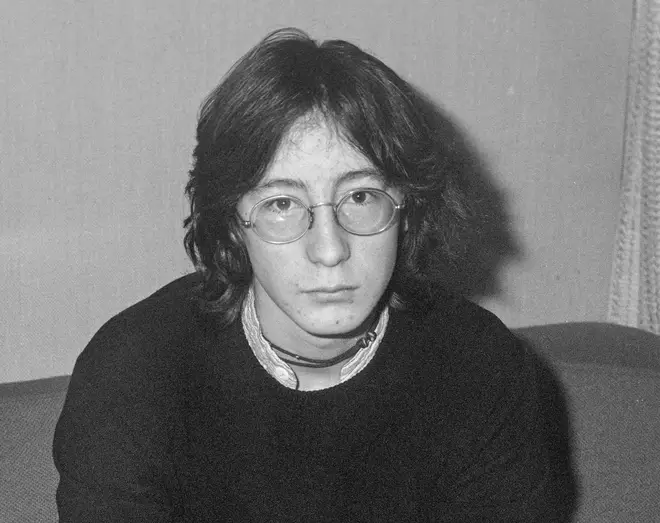
George Harrison issued a statement, saying: "After all we went through together, I had and still have great love and respect for him. I am shocked and stunned." Ringo Starr and his wife Barbara Bach rushed to the Dakota to be with Yoko.
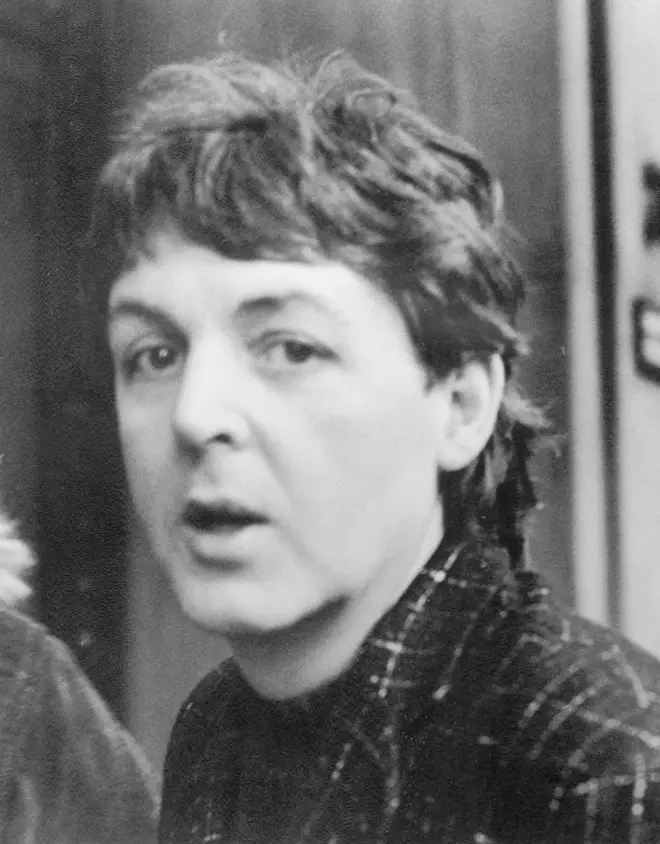
Paul McCartney was doorstepped by press on his way out of a recording studio. When asked for a comment on Lennon's death, McCartney couldn't articulate his grief, blurting out the flippant words: "Drag, isn't it?" He instantly regretted the statement but was able to pay tribute to his fallen comrade properly in the song Here Today.

'Here Today' - PaulMcCartney.com Track of the Week
There was no funeral for John Lennon, just a private cremation. But Yoko and Sean held a vigil for the Beatle on 14th December 1980 with ten minutes of silence. Lennon's ashes were scattered in Central Park, opposite the Dakota, where there now lies a memorial called Strawberry Fields.

In Britain, Lennon's music was everywhere. Christmas that year was tinged with sadness - (Just Like) Starting Over went to No 1 in the charts, quickly followed by the 1971 classic Imagine, which stayed at the top for four weeks. Then Imagine was knocked off the top spot by Woman, a song from Double Fantasy.
The rest of the songs that John had recorded before his death were eventually issued as the album Milk And Honey in 1984. And Yoko got her hit when Walking On Thin Ice (subtitled "For John") charted in early 1981.
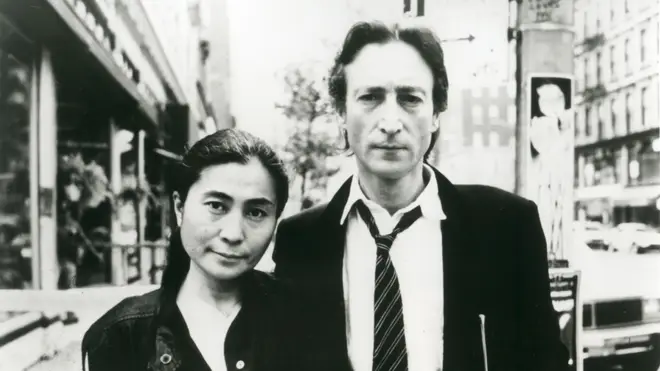
Mark Chapman was interviewed for hundreds of hours by court-appointed psychiatrists on behalf of defence and prosecution lawyers. The defence concluded that Chapman was a paranoid schizophrenic, while the prosecution claimed he was competent to stand trial. Chapman himself took the decision to plead guilty to the murder and he was sentenced to 20 years to life.
In 2022, Chapman was eligible for parole for the twelfth time. He said in his statement that he knew that his actions were wrong, but that he "wanted the fame too much". The board denied his application, saying he had a "selfish disregard for human life of global consequence".
In March 2024, just over forty-three years after the murder, Chapman was once again denied parole. Chapman is eligible again in 2025, when he will be 70 years old.
